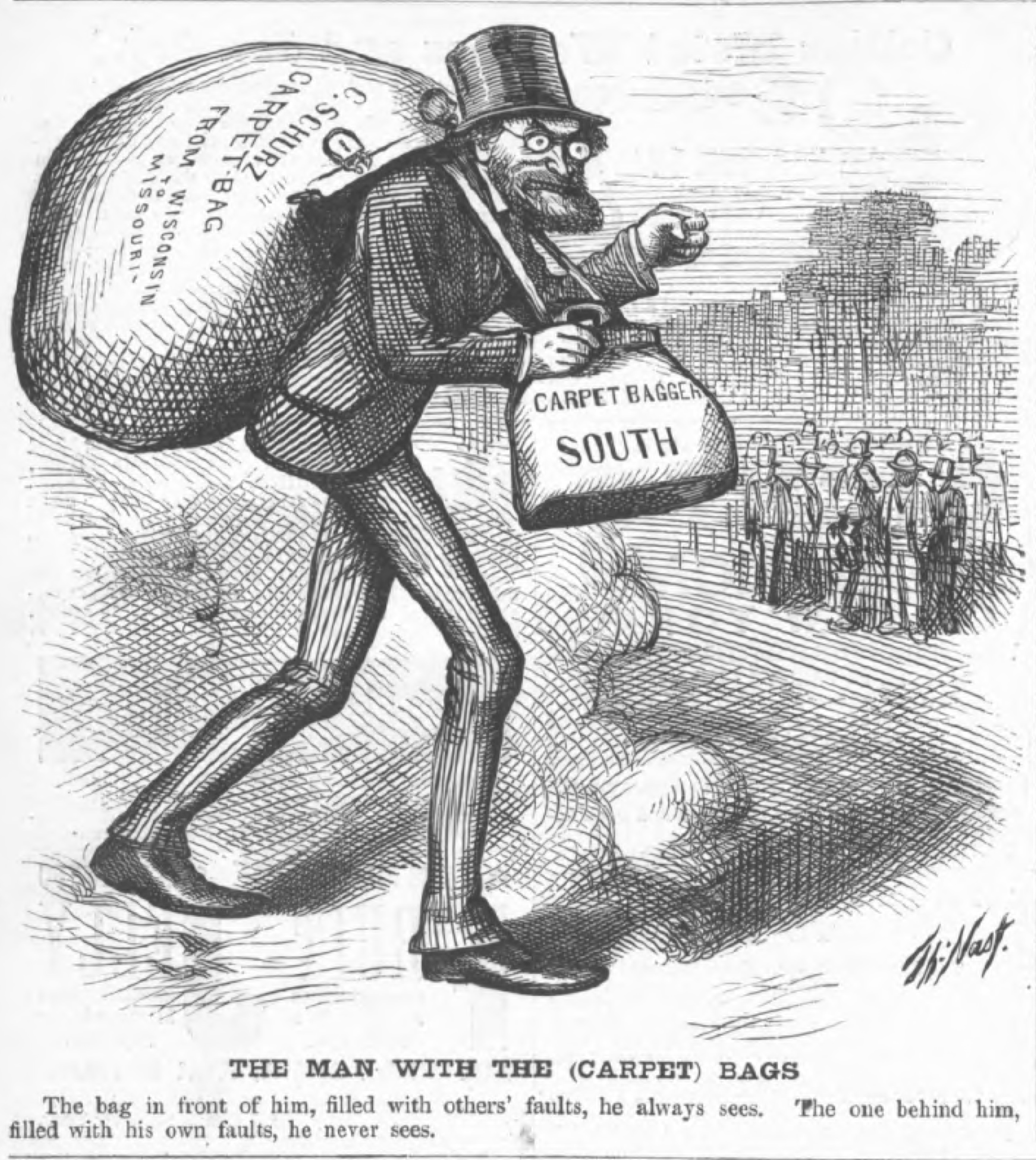Consider Eugene Genovese's account of the intellectual imperialism which dominates the history of the South as a discipline:
The northern victory in 1865 silenced a discretely southern interpretation of American history and national identity, and it promoted a contemptuous dismissal of all things southern as nasty, racist, immoral, and intellectually inferior. The northern victory did carry out a much too belated abolition of slavery. But it also sanctified northern institutions and intentions, which included the unfettered expansion of a bourgeois world view and the suppression of alternate visions of social order. In consequence, from that day to this, the southern conservative critique of modern gnosticism has been wrongly equated with racism and white supremacy...
The history of the Old South is now often taught at leading universities, when it is taught at all, as a prolonged guilt-trip, not to say a prologue to the history of Nazi Germany...To speak positively about any part of this southern tradition is to invite charges of being a racist and an apologist for slavery and segregation. We are witnessing a cultural and political atrocity - an increasingly successful campaign by the media and an academic elite to strip young white southerners and arguably black southerners as well, of their heritage, and, therefore, their identity. They are being taught to forget their forebears or to remember them with shame...It is one thing to silence people, another to convince them. And to silence them on matters central to their self-respect and dignity is to play a dangerous game - to build up in them harsh resentments that, sooner or later, are likely to explode and bring out their worst.
Genovese's picture is convicting primarily because it speaks so directly to the experience of all Americans who have, at some point, sat through a variety of academic courses and participated in a public discourse which sees the South as the ideological punching bag of the dominant cultural and intellectual forces. But my interest here is not to bemoan the ongoing cultural, intellectual, and economic marginalization of the South. It is, instead, to draw attention to the hypocrisy which the realization that southerners are an imperalized people brings to light. In spite of more than a century of being told that its systems of power, its culture, its values, and its economic models are inferior and even evil (and in some cases they assuredly were), it is now the South which has taken up the baton and is leading the charge for ever greater pursuits of American imperialism overseas.
Certainly, America is no longer acquiring new territory by force as it did a century ago at the height of the Age of Imperialism, but our imperialism is nevertheless as vigorous as ever. It is now commonplace to justify our foreign wars (and various other interventionist efforts) as attempts to spread freedom, democracy, and capitalism. Freedom, of course, is understood only in terms of American individualistic libertinism, and alternate theories of freedom are not considered. Democracy, even as it throws countries into fits of political turmoil, war, and mob violence, is never questioned as a universal imperative. After all, it works here--except that it seems that everyone agrees it isn't working at the moment. There is no need to even consider how often a jingoistic devotion to capitalism has brought the world to the brink of annihilation in the past seventy years. During recent decades and in contemporary discourse particularly, it has been the Republican Party with its primary base in the South which has promoted this brand of cultural and economic imperialism.
So be it, if that's what Americans want. After all, the essence of almost every great civilization in history is the ability to devise a culture, economy, and government that is easily and profitably exported by coercion for the benefit of the originating state. The problem with that model is that the South is not the origin of these ideas. It is within living memory that the last Civil War veteran died. Southerners remember that war, right? That is the one that was fought because Southerners rejected New England concepts of the scope and nature of freedom, the balance in republican democracy between central and regional interests, and the virtue of "Mammonism." The ideas that Southerners are now attempt to violently export these values internationally after having them violently overwhelm their own culture would be comical if it weren't so unsettling. The deepest irony comes when we realized that--just as once Southerners opposed government involvement in marriage laws--the original anti-imperialists were Bourbon Democrats, the Redeemers who had saved the South from Northern domination during Reconstruction. How quickly we forget.
If only the South would stop to remember what it felt like and what it continues to feel like to be forcibly conformed to foreign modes of thinking, southerners would be more reluctant to make American imperialism an ideological pillar in the new architecture of southern thought.

No comments:
Post a Comment